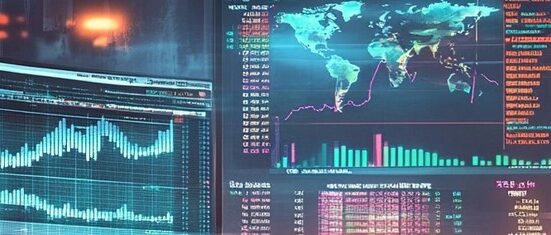Understanding Forex Spread Basics

In the forex market, the term spread refers to the difference between the bid price and the ask price of a currency pair. The bid price is the rate at which a trader can sell a currency, while the ask price is the rate at which a trader can buy a currency. The spread is essentially the cost of trading a currency pair and is a crucial concept for any forex trader to understand. It is often expressed in pips, which are the fourth decimal place in a currency pair price quote.
Forex spreads can vary widely between brokers and trading platforms, and they may change based on market conditions, such as volatility or liquidity. Generally, lower spreads are more favorable for traders, as they reduce the cost of transactions.
Key Components of Forex Spread

Understanding the key components of forex spread is essential for traders who wish to make informed decisions. These components include:
- Bid Price: The price at which the market is willing to buy a currency pair.
- Ask Price: The price at which the market is willing to sell a currency pair.
- Pips: The unit of measurement to express the change in value between two currencies.
- Liquidity: The ease with which a currency can be bought or sold without causing a significant change in its price.
The table below compares the bid and ask prices for a better understanding:
| Currency Pair | Bid Price | Ask Price | Spread (Pips) |
|---|---|---|---|
| EUR/USD | 1.1000 | 1.1003 | 3 |
| GBP/USD | 1.2500 | 1.2505 | 5 |
| USD/JPY | 110.00 | 110.05 | 5 |
How Forex Spread Affects Trading

The forex spread directly impacts the cost of trading. A wider spread means a higher cost for entering a position, while a narrower spread means a lower cost. Here’s how it affects trading:
- Entry and Exit Costs: A wider spread increases the cost of opening and closing a position, potentially reducing overall profit.
- Trading Strategy Impact: Traders who use scalping strategies, which rely on small price movements, are more affected by the spread than those who use long-term strategies.
- Market Conditions: During high volatility or low liquidity periods, spreads can widen, making trading more expensive.
Factors Influencing Forex Spread

Several factors can influence the spread in forex trading:
- Market Liquidity: High liquidity usually results in tighter spreads, while low liquidity can lead to wider spreads.
- Market Volatility: During volatile periods, spreads tend to widen due to increased risk.
- Economic Events: Major economic announcements or geopolitical events can cause spreads to widen temporarily.
- Time of Day: Spreads can vary throughout the day, with tighter spreads often observed during major market sessions.
Calculating Spread in Forex Trading

Calculating the spread is a straightforward process. It involves subtracting the bid price from the ask price. For example:
If the EUR/USD currency pair has a bid price of 1.1000 and an ask price of 1.1003, the spread would be:
[ text{Spread} = text{Ask Price} – text{Bid Price} = 1.1003 – 1.1000 = 0.0003 text{ (or 3 pips)} ]
Knowing how to calculate the spread is vital for assessing the cost of trades and planning strategies.
Strategies to Minimize Forex Spread

While spreads are an inherent part of forex trading, there are strategies that traders can adopt to minimize their impact:
- Choose the Right Broker: Select brokers that offer competitive spreads and transparent pricing.
- Trade During Peak Market Hours: Engage in trading during times of high market liquidity to benefit from tighter spreads.
- Use Limit Orders: Implementing limit orders instead of market orders can help control the price at which a trade is executed.
- Monitor Economic Calendars: Avoid trading during major economic announcements that may cause spreads to widen.
In conclusion, the forex spread is a fundamental aspect of trading that can significantly influence transaction costs and profitability. By understanding its components, calculating it accurately, and employing strategies to manage it, traders can make more informed decisions and optimize their trading outcomes.







Leave feedback about this